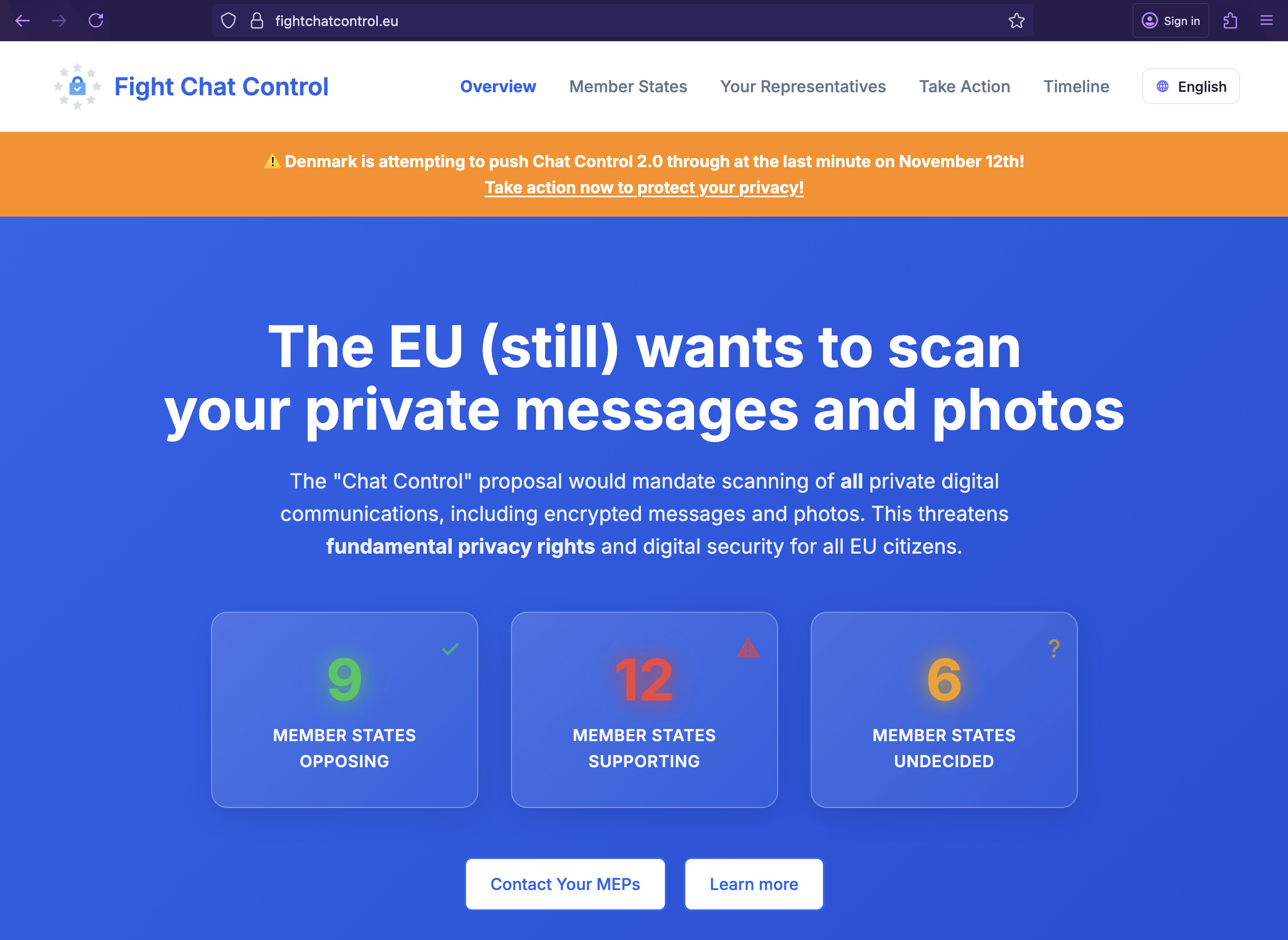The about face of EU governments with respect to CSAM on X is rather disgusting.
" ... 99% of those images are of women and girls. The world's most prolific child sexual abuse material and sexual harassment factory is now on Fenian Street in Dublin. We don't need a dawn raid, or an Interpol investigation to reveal that address."
#CSAM #X #Twitter #EU Go get 'em!!
Yet Ireland is inactive. Yet Ireland voted for the bad #ChatControl proposal of digital scanning in Europe of everyone's devices to counter CSAM. 🤦♀️
The about face of EU governments with respect to CSAM on X is rather disgusting.
" ... 99% of those images are of women and girls. The world's most prolific child sexual abuse material and sexual harassment factory is now on Fenian Street in Dublin. We don't need a dawn raid, or an Interpol investigation to reveal that address."
#CSAM #X #Twitter #EU Go get 'em!!
Yet Ireland is inactive. Yet Ireland voted for the bad #ChatControl proposal of digital scanning in Europe of everyone's devices to counter CSAM. 🤦♀️
@blenderdumbass @EUCommission #chatControl was never about the children. It was always about control. At least they are publicly showing it to everyone to whom it hasn't been bloody obvious from the beginning.
@EUCommission In the face or recent #chatcontrol stuff ( with similar reasoning ) I feel slight tingling of unease. I don't like AI, I don't like X ( or any other proprietary platform ) and I don't like abuse. But the way this argument was put together feels a bit odd.
@blenderdumbass @EUCommission #chatControl was never about the children. It was always about control. At least they are publicly showing it to everyone to whom it hasn't been bloody obvious from the beginning.
We are very well aware of the fact that X for Grok is now offering a spicy mode showing explicit sexual content with some output generated with childlike images:
📌 A detailed request for information on Grok has been sent to X, and we are reviewing the company’s responses.
📌 X has been ordered to retain all internal documents and data concerning Grok’s features until the end of 2026.
The Digital Services Act is very clear:
In the EU, all platforms have to get their own house in order.
@EUCommission In the face or recent #chatcontrol stuff ( with similar reasoning ) I feel slight tingling of unease. I don't like AI, I don't like X ( or any other proprietary platform ) and I don't like abuse. But the way this argument was put together feels a bit odd.
@EUCommission Online safety, I see.
That will most likely refer to a renewed attempt to implement #ChatControl and #RealID to so endanger the digital security of each EU citizen.
We’ve got big plans for 2026!
We’re turning Europe’s priorities into action, delivering results that matter for people, businesses, and communities across the EU.
Our focus:
🔸Protecting democracy and values
🔸Security and preparedness
🔸Prosperity and competitiveness
🔸Strengthening our societies and social model
🔸Sustaining our quality of life
🔸EU global power and partnerships
Ambition. Action. Results.
Find out more: https://link.europa.eu/Yp6XqT



@EUCommission Online safety, I see.
That will most likely refer to a renewed attempt to implement #ChatControl and #RealID to so endanger the digital security of each EU citizen.
Do you see how rights and freedoms are removed from the people in the name of supposedly protecting the children,
But when actual child abuse happened from the powerful, whether literally or by proxy in the form of AI algorithms on popular commercial platforms, the same actors demanding child protections are completely silent?
1- Chat Control and Age Verification isn't about protecting the children, it's about surveilling and controlling us.
2- As long as the abuse is perpetrated in the name of "AI" or corporate profits, no laws or protections seem to apply anymore.
This should make everyone extremely angry, and should be enough to make everyone with a moral compass delete their account on X immediately.
#CSAM #X #ChatControl #AgeVerification #Privacy #HumanRights #DeteleTwitter
Do you see how rights and freedoms are removed from the people in the name of supposedly protecting the children,
But when actual child abuse happened from the powerful, whether literally or by proxy in the form of AI algorithms on popular commercial platforms, the same actors demanding child protections are completely silent?
1- Chat Control and Age Verification isn't about protecting the children, it's about surveilling and controlling us.
2- As long as the abuse is perpetrated in the name of "AI" or corporate profits, no laws or protections seem to apply anymore.
This should make everyone extremely angry, and should be enough to make everyone with a moral compass delete their account on X immediately.
#CSAM #X #ChatControl #AgeVerification #Privacy #HumanRights #DeteleTwitter
🚨 Denmark is attempting to force #ChatControl 2.0 through the back door TODAY!
Take action now!
I spoke with The Stack some weeks ago about the EU giving up its competitive edge in building privacy and security technology people trust over other jurisdictions. With #ChatControl and other #surveillance conversations, it is just eroding trust for everyone.
https://www.thestack.technology/why-the-eus-voluntary-version-of-chat-control-hasnt-quelled-privacy-fears/
I spoke with The Stack some weeks ago about the EU giving up its competitive edge in building privacy and security technology people trust over other jurisdictions. With #ChatControl and other #surveillance conversations, it is just eroding trust for everyone.
https://www.thestack.technology/why-the-eus-voluntary-version-of-chat-control-hasnt-quelled-privacy-fears/



